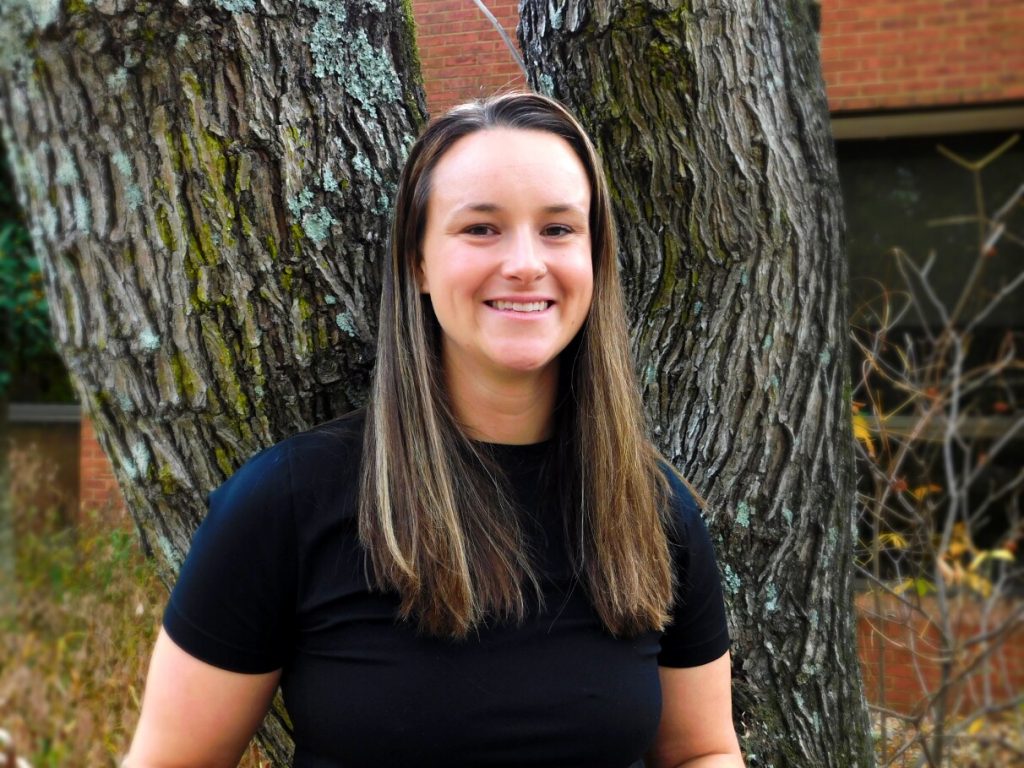Carolyn Cummins is a Ph.D. candidate in the Odum School of Ecology. Her major professor is Amy Rosemond. Her dissertation research focuses on how temperature affects carbon cycling, aquatic insect physiology and organismal community structure in southern Appalachian headwater streams.
Cummins is passionate about effective and inclusive undergraduate education, and she has pursued various on- and off-campus teaching roles during her time at UGA. She traveled to Costa Rica as the teaching assistant for the UGA Costa Rica Tropical Sciences Study Abroad Program in 2021, and she served as an instructor-of-record on the UGA Interdisciplinary Field Program in 2022. She has also contributed to course design in the Odum School, helping to design and teach a new ecosystem ecology lab during the 2022-23 academic year.
Jeongah Shin is a Ph.D. candidate in the Department of Textiles, Merchandising and Interiors in the College of Family and Consumer Sciences. She joined the program as a master’s student in 2018. Her research focuses on consumer emotion, attitude and behavior in computer-mediated environments.
Shin has expanded her research interests to the classroom under the theme of “bringing the technology into the classroom.” She consistently strives to integrate new technologies into the learning experience for fashion merchandising students.
Shin completed three innovative teaching projects (Wear Your Magic Box, Eye Tracking App Development, and Talk in Metaverse) under the direction of Yoo-Kyoung Seock. Shin has assisted several classes, including Trend Analysis and Forecasting, Fashion Product and Brand Management, UX/UI Design Application in Fashion Branding, and Fashion Meets Technology as a teaching assistant, co-instructor and instructor-of-record.
Additionally, she served as a graduate assistant for the FACS London Study Abroad Program in summer 2022. She was selected as a Future Faculty Fellow for the Center of Teaching and Learning and received the Outstanding Teaching Assistant Award in 2023. Shin expects to earn an Interdisciplinary Certificate in University Teaching in Spring 2024. She desires to become a researcher and instructor who constantly brings new technologies and industrial insights into the classroom.
Cydney Kate Seigerman is a Ph.D. candidate in the Integrative Conservation and anthropology program. Their major professor is Don Nelson. Seigerman is an NSF Graduate Research Fellow and was a research fellow at the Research Institute for Meteorology and Water Resources in Ceará, Brazil, from 2021 to 2023. They earned their B.S. in chemistry and Spanish language and literature from the University of Michigan, graduating Phi Beta Kappa from the Residential and Honors Colleges. They then relocated to Madrid, Spain, where they served as a Fulbright English Teaching Assistant and studied acting at the theater school La Lavandería.
Seigerman is a transdisciplinary water scholar guided by the premise that equity and justice are fundamental to creating more sustainable futures. Their research examines the interactions among human behavior and the cultural, political, technological, and environmental factors that shape water governance. Seigerman works across the sciences and arts to develop more equitable solutions to water challenges.
Seigerman’s dissertation work examines how socionatural (i.e., interrelated sociopolitical, environmental and technological) processes shape and are shaped by the lived experience of water insecurity in Ceará, Northeast Brazil. Among their work across disciplines, Seigerman is a contributing author of “Chapter 4: Water” of the 2022 IPCC Report and collaborated with members of Quilombo Mearim, a rural community in Ceará, Brazil, to produce the play Mudanças na água do Quilombo Mearim (Hydrological Changes in Quilombo Mearim), which tells the story of the community’s water past, present and possible futures.
